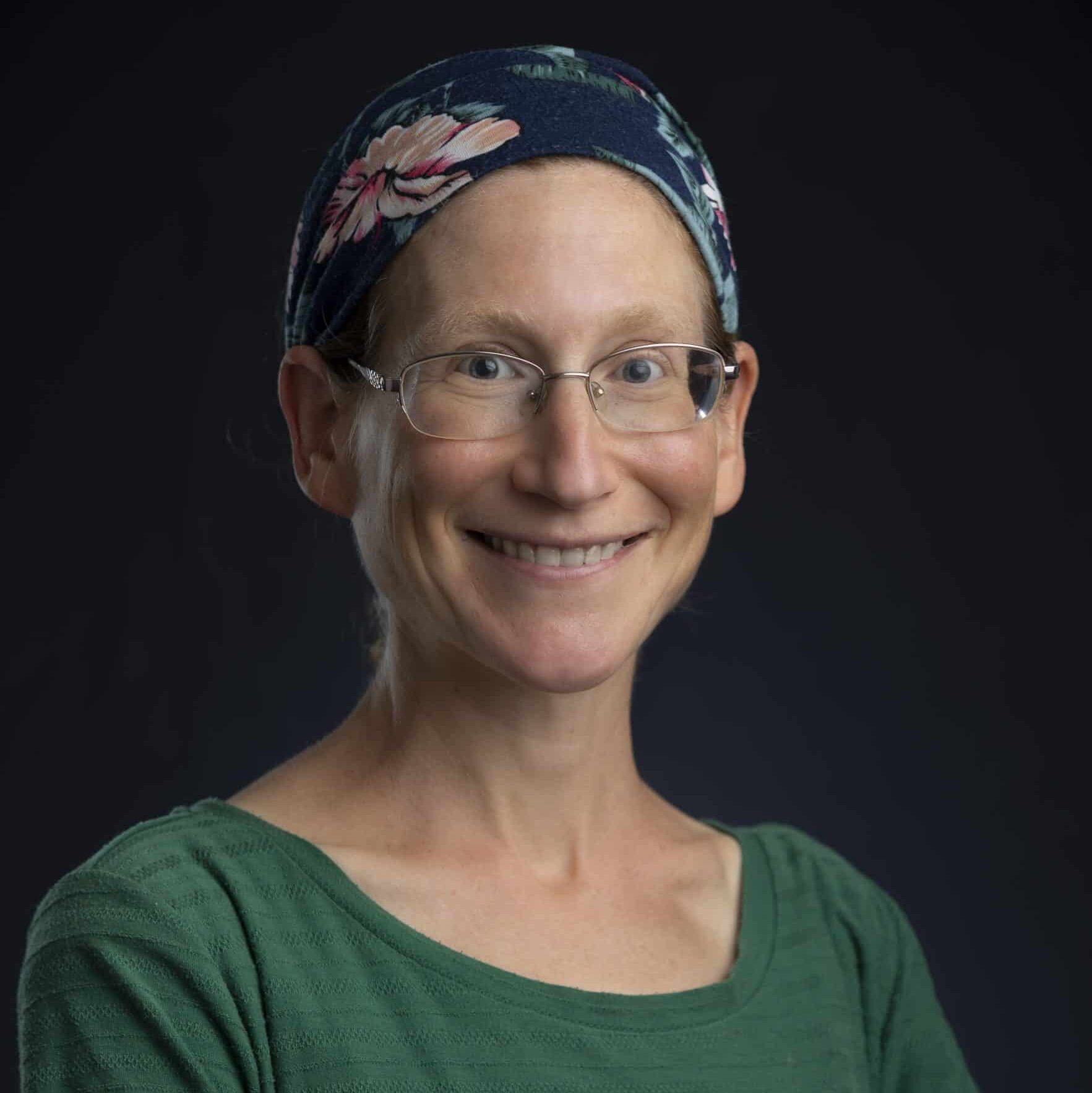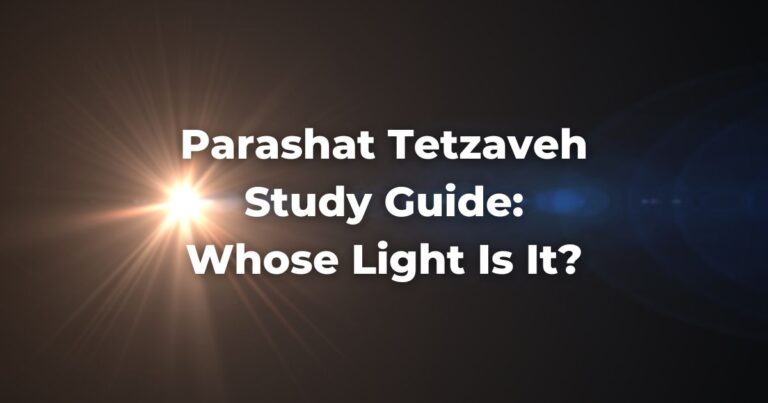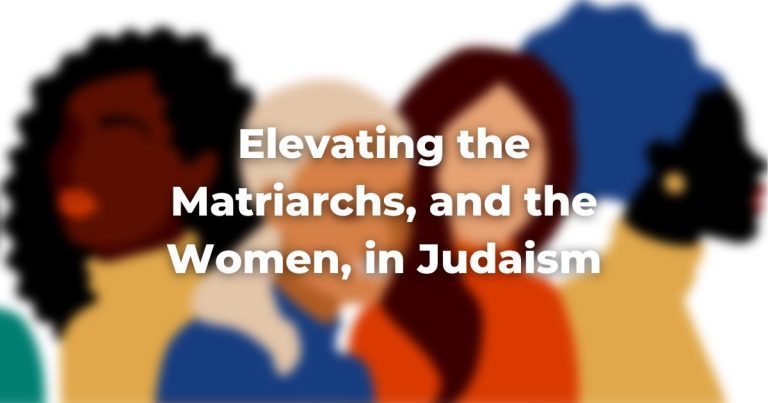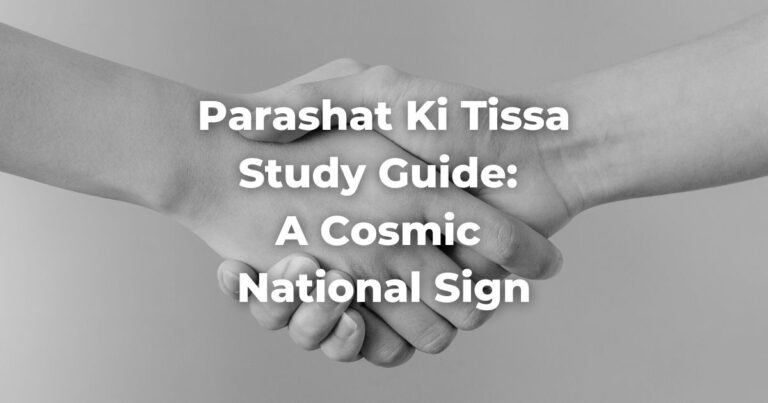Our parashah begins with the laws governing oaths and vows.
Who can make a vow? And How?
Then TorahRefers to the first five books of the Hebrew Bible, the Tanakh, also called the Five Books of Moses, Pentateuch or the Hebrew equivalent, Humash. This is also called the Written Torah. The term may also refer to teachings that expound on Jewish tradition. Read more teaches that both men and women may make vows, but whereas a man’s vows remain binding, a woman’s vows may be annulled by her husband or father (Numbers 30).
Indeed, the majority of the verses in this chapter refer to the details of how and when a husband may annul his wife’s vows, a subject discussed at length throughout Seder Nashim, the section of the TalmudReferring to one of two collections, the Jerusalem and Babylonian Talmuds, edited in the 6th century, that contains hundreds of years of commentary, discussion, and exploration of the ideas in the Mishnah. One could describe it as Mishnah + Gemara = Talmud Read more dealing with marriage, divorce, adultery, and other aspects of the relationship between husband and wife.
The discussion of vows both in our parashah and in the Talmud suggests that vows played an important role in the marital dynamic, offering a window into the risks and rewards of intimate, committed partnership.
Types of Vows
Our parashah, in discussing the laws of vowing, refers to “vows and sworn obligations of self-denial” (Bamidbar 30:14), and indeed the majority of the vows discussed in the Talmud in the context of husband-wife relationships refers to vows of prohibition, in which a person declares that something will be forbidden to him or her. For instance, an individual may swear not to eat certain fruits, or not to bathe, or not to derive any benefit from another person.
At times such vows were taken in an attempt to draw closer to God by means of self-denial, like the case of the Nazirite, who vows to abstain from wine and from hair-cutting and from contact with the dead for thirty days. Anyone who has ever committed to a diet recognizes that self-denial seems at times worthwhile in service of a higher end. If I do not eat chocolate cake for a month, I will be able to wear my favorite dress to my sister’s wedding. And if I swear in the name of God that I will not drink wine for a month, then my self-denial will bear witness to my devotion to God, bringing me to a higher spiritual level.
The Talmud recognizes that such vows of self-denial, while perhaps spiritually efficacious for the individual, could be quite harmful in the context of intimate partnership.
After all, who would want to sleep in the same bed as a person who has vowed not to bathe for a month, no matter how pious his or her intentions?
Limitations on Vows
The rabbis, in light of this difficulty, imposed limitations on the vows and oaths taken by husbands and wives. These limitations may seem foreign to our modern sensibilities, given their inherent gender imbalances; but in biblical times, they served as a means of negotiating spousal relationships.
Basing themselves on verses from our parashah, the rabbis teach, according to one opinion, that a husband is authorized to annul any vow that his wife takes that involves her self-affliction, or that pertains to matters between him and her (Nedarim 79b). For instance, if a woman vows not to wear make-up, or not to engage in sexual relations, her husband may annul that vow. Indeed, should he not annul such a vow, it would be tantamount to saying that he is not interested in continuing their relationship.
The Talmud states that when a husband fails to annul such a vow by his wife, it is as if “he puts his finger between her teeth” (Ketubot 71a) – meaning that he is asking for it, and it is his own fault if he is negatively impacted by her behavior. As such, a wife’s vows may be understood as a passive-aggressive test of her husband’s devotion: If you love me, surely you will annul my vow.
Conversely, the Talmud (Ketubot chapter 7) also restricts the ways a husband can restrict his wife’s behavior by means of a vow. Although a wife may not annul her husband’s vows, she is also not required to remain in a marriage in which her husband’s vows restrict her behavior in certain ways. For instance, if a husband takes a vow with the implication that his wife may not attend weddings or pay shiva visits, then she is entitled to a divorce immediately, because a husband may not deprive his wife of social connection.
And if he takes a vow with the implication that she may not spend the holidays in her father’s home, he may do so only for one holiday but no more, suggesting once again that he is limited in the degree to which he may restrict her autonomy.
These laws reflect an awareness that a husband may, in an effort to assert control and dominion, impose restrictions on his wife that we would refer to in modern parlance as domestic abuse; in such situations, a woman has legal right to be released from the marriage and to receive the payment due to her by her marriage contract.
The Emotional and Intimate Aspects of the Vows of Marriage
The Talmudic discussion of vows made by husbands and wives offers insight into the emotional and intimate aspects of marriage.
As Dov Berkovitz writes in an essay about Tractate Ketubot (HaDaf HaKiyumi, untranslated), a vow made by a wife and annulled by her husband, or a vow made by a husband restricting his wife, is a window into the inner workings of their hearts – is the husband trying to get space from his wife? Is he trying to control her? Is the wife testing her husband’s devotion? Does she feel sufficiently confident in his love?
The Talmud, in imposing restrictions on such vows, acknowledges that marriage is a very sensitive human dynamic, best handled with great care.
Marriage, like any committed long-term partnership, forges a deep connection in which both individuals expose their most vulnerable aspects to one another.
The reward for such vulnerability and exposure is the potential for mutual understanding, trust, dedication, and love.
By getting to know another person in the deepest possible way, we learn how to give that person what they most need, when they most need it. We learn how to draw out what is best in the other person, and how to speak honestly and openly about what we wish were otherwise.
Ideally we do so without causing too much pain, because, as the Talmud recognizes, two people who love one another may also know how to hurt one another the most.
We hope that with time, we will learn to trust and not to test; to heal and not to hurt; to love and not to lose the person we hold most dear.
See more: Parashat Matot
Originally posted as part of the Conservative Yeshiva at the Fuchsberg Jerusalem Center’s Torah Sparks. Support Torah learning from the Fuchsberg Jerusalem Center/Conservative Yeshiva for leaders and seekers around the world here.
Authors
-

Ilana Kurshan teaches Talmud at the CY. She is the author of If All the Seas Were Ink (St. Martin’s Press, 2017) and Why is This Night Different From All Other Nights (Schocken, 2005). She has a degree in History of Science from Harvard and in English literature from Cambridge, and has worked in literary publishing both in New York and in Jerusalem – as a translator, a foreign rights agent, and as the Books Editor of Lilith Magazine. Since October 2020, Ilana has been a regular contributor to Torah Sparks, FJC’s weekly parashat hashavuah blog.
View all posts -



The Fuchsberg Jerusalem Center (FJC) is a home in the heart of Jerusalem where leaders and seekers can find an authentic place in Jewish tradition to call their own. FJC offers opportunities to study, pray and explore within an egalitarian and inclusive setting, creating multiple pathways for finding personal and communal meaning.
View all posts






